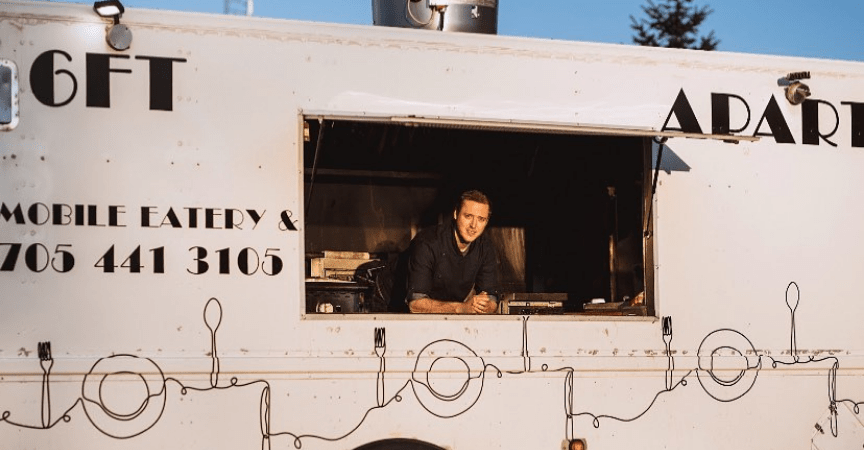Foodservice Workers are Reinventing and Reworking their Careers to Thrive during Pandemic
Professionals share their COVID-19 stories about how they adapted their careers and lifestyles to pursue their passion during this challenging time. By Kate Ayers for Farmwork to Feed Canada
Every industry has been affected in some way by COVID-19 and on a personal level, I think most of us can agree that the pandemic has altered our decisions or life. Canada’s foodservice and hospitality industry has been especially decimated by the pandemic, nevertheless, as many of demonstrated, this deconstruction of systems presents us with the opportunity to reinvent, reconnect, and rebuild.
It’s this upheaval that has caused us to see an influx of entrepreneurs joining the foodservice industry to explore their side hustles after losing their corporate job, and has us witnessing the closure of over 10,000 local restaurants across the country.
These ‘influx’ times have left us wondering about the fate of foodservice so we sat down to gather stories across the industry of those who have reinvented their careers, whether industry veterans or newcomers, to understand how and why they chose to pivot, and what these changes may mean for the future.
Chef Michael Thompson, 6ft. Apart Mobile Eatery & Catering
With the onset of the COVID-19 pandemic, Chef Michael Thompson took his destiny into his own hands. When his former employer, The Tremont Cafe in Collingwood, was affected by COVID-19 safety restrictions, Thompson returned to his family’s farm and began to draw up plans for a new business. On the heels of 11 years in the foodservice industry at establishments from Nova Scotia to British Columbia, Thompson briefly hung up his sous-chef hat to work on his family’s farm and the largest duck operation in Canada, King Cole Ducks.

“I didn’t know what COVID-19 was going to bring to my family’s business, especially being a part of the live production side of things. I felt that it was best to move back home and help my family in any way I could,” Thompson says. During his stint on the farm, Thompson worked 11-hour days. He worked on the duck processing assembly line and collected 13,000 duck eggs each day.
“I was happy to help during a difficult time but I wanted to get back to focusing on my passion. A friend suggested a food truck and the idea stuck. During the pandemic, food trucks are still considered an essential service and facilitate takeout food orders. So, was something I could do.”
Then, his 6ft. Apart food truck came alive.
When Thompson mentioned his business idea to people, they all assumed he planned to serve burgers and French fries. However, he had a much different cuisine in mind. Thompson wanted to continue doing what he does best – prepare fine dining meals in a fun and approachable food-truck style. “Before I jumped into (the business) I did a lot of research. I discovered that the average wait time for food trucks was 14 minutes. People are lined up and names are called out,” Thompson says.
“During COVID, I don’t want to yell out names and have groups standing around.” To avoid this issue, Thompson designed his entire menu around execution. The dishes are complex and take hours of prep in his commercial kitchen, but he executes them off the truck in minutes. His food truck serves gourmet duck wings, tacos and Thai bowls. Thompson makes his dishes with “local Ontario lamb from our neighbours at the farm. The lamb is roasted on coals for about 15 hours,” he says. “Duck wings are cured and confit in duck fat. The Thai contains paste that I make from scratch.”
Thompson also creates custom menus for special occasions, such as staff appreciation events and weddings. His specialty is private dinner parties where he pulls his truck right up to the front door and executes a six to eight-course dinner with wine pairings, creating a very unique dining experience.
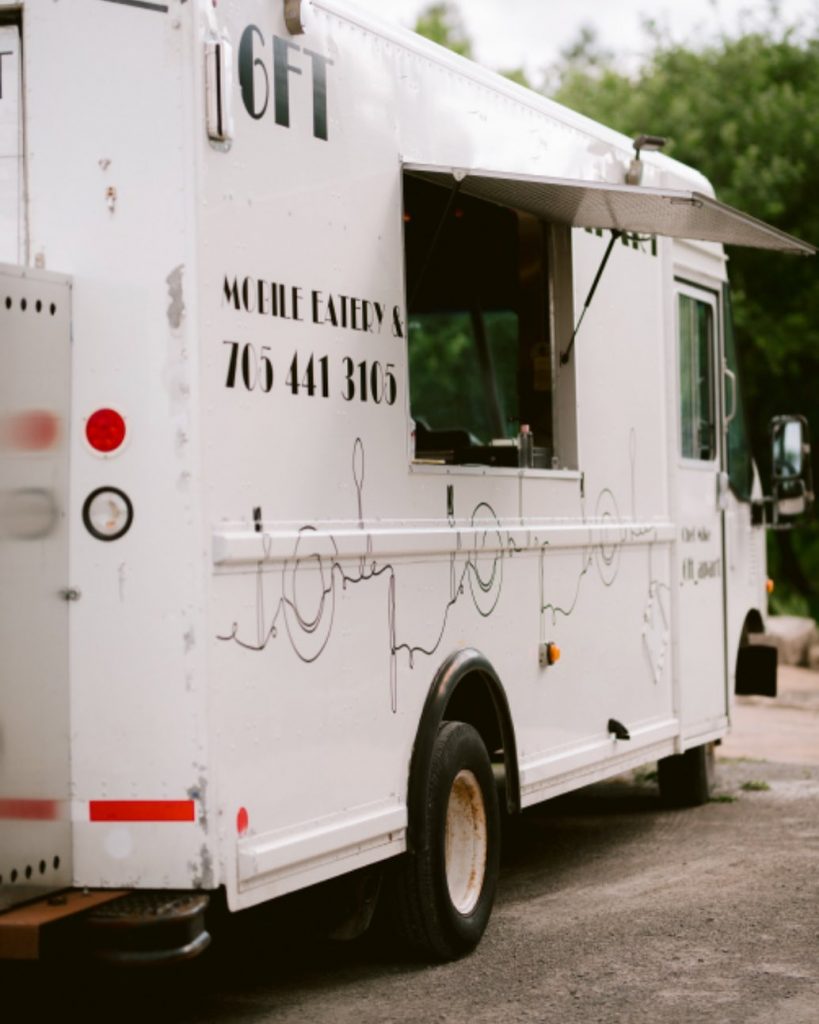
Like many entrepreneurs during this time, Thompson was apprehensive of consumer perception and acceptance during COVID-19. It’s a super weird time. I didn’t know how people would receive this business or would feel about coming to get food off a truck,” he says. Despite his worst fears, “my business has been non-stop since the day I started serving back in June 2020. I have a clean food truck, people are distanced and they have been welcoming.”
Thompson’s success can be attributed to his innovation and outside-the-box thinking. He encourages other foodservice stakeholders to “band together and learn from each other,” he says. “The game plan or model that you had before the pandemic must shift to make your dreams happen,” Thompson adds. “Step outside of your comfort zone. Develop something that not only generates revenue but excites your guests; something that is different than what they have seen from you.”
Moving forward, Thompson looks to combine his passions for cooking and teaching. “I want to have commissary kitchens across Ontario and bring in co-op students to work with me,” he states. When he was in culinary school, “I found that the hands-on learning aspect in our industry was a big miss. I want to show them the real-life working environment in a commercial kitchen and share my knowledge and passion with the next generation.”
Becca Pereira, Spice Girl Eats
Like many other Canadians last year, 23-year-old Becca Pereira was laid off from her day job when COVID-19 took grip of North America. When asked to return to work at a hair salon in the fall, Pereira had other plans. “I have cooked every single day during the pandemic and I was unaware of anyone else offering homemade Indian food,” Pereira says. “I brought up the idea to my mom and she was fully supportive of the business.”
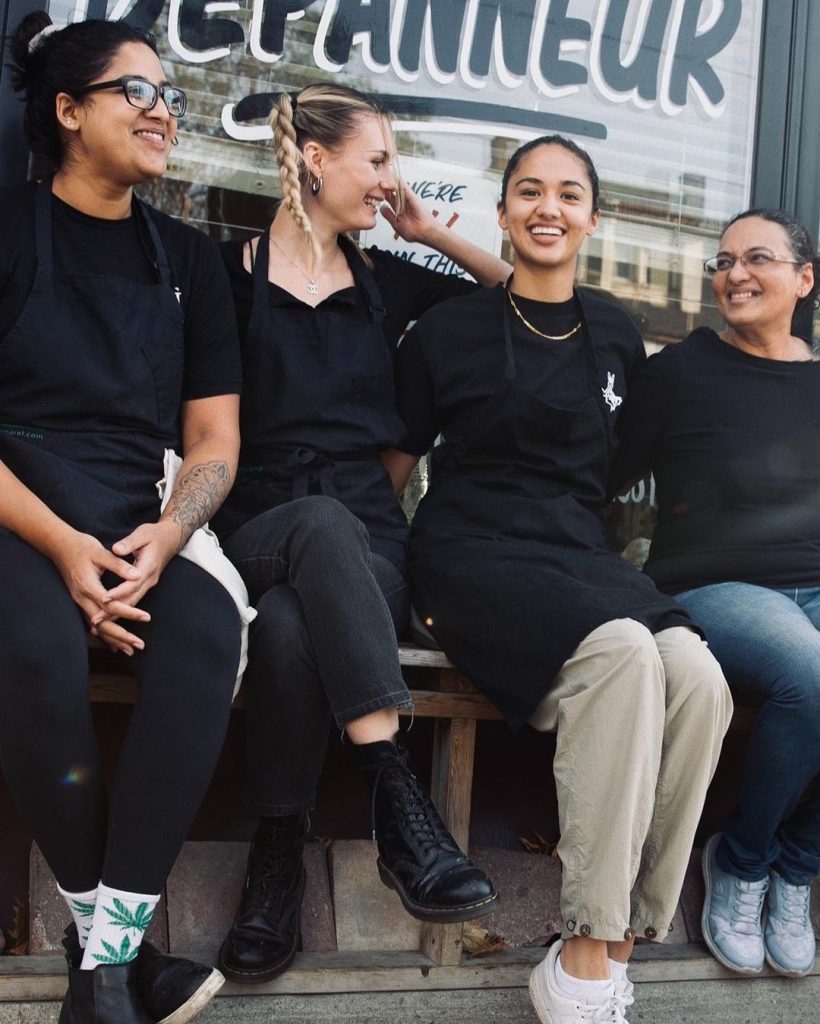
Last October, Pereira launched Spice Girl Eats and offers Indian cuisine for pick up every Tuesday. She lives down the street from The Depanneur and rents out their commercial kitchen space. “It started out just being me in the business, but everyone in my family has joined the team,” Pereira says. “I was able to hire my mom. She has been a chef since I was a kid and has a strong background in Indian cuisine. I didn’t plan on what it has become. It just kind of happened.”
Pereira attributes her confidence and drive to previous job experiences. “I had modelled since I was 16. Modelling was a good transition to working for myself. I have thick skin from criticism. With my food, I know that I can’t please everyone but I don’t let that stop me,” Pereira says.
While
she has no formal education in business management nor cooking, Pereira is
learning on the job and soaking up as much as she can from other professionals
in the industry. She quickly recognized the importance of “knowing
your market,” Pereira says. “I
hired an accountant right away and it was the best decision. Know your
finances, expenditures and where your profit lies.”
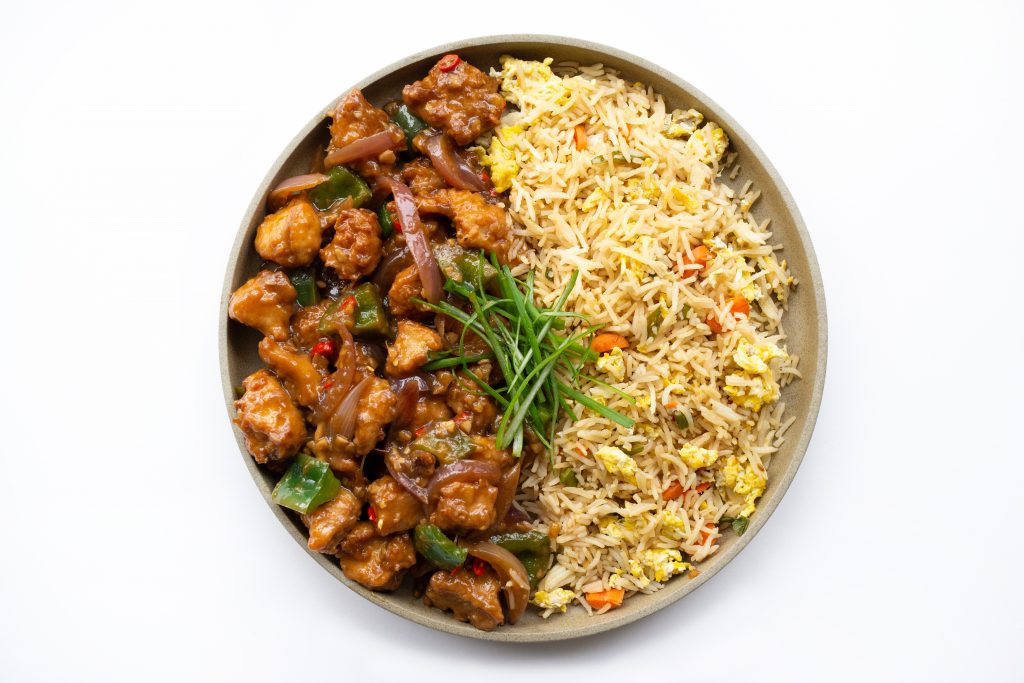
Pereira continues to learn the ropes of entrepreneurship and looks forward to capitalizing on her business’s potential. “For me, staying organized is a challenge – managing calls, orders, packing, social media and emails. I have a never ending list of things, but I wouldn’t have it any other way. I would much rather work for myself.”
Pereira’s mother takes care of most of the meal creation, but desserts are where Pereira’s creativity and talent shine. “I really enjoy experimenting with desserts,” she says. “I can create new recipes and test them out in real-time. Then, I can see, based on data, what sells. I use this information to constantly improve each week.” As a testament to her baking abilities, Pereira’s favourite dish is the pista-kulfi cheesecake. “I take a slice home on Tuesday no matter what,” she adds.
Business is booming and Pereira has exciting plans to elevate her brand. “I think Spice Girls Eats will be my life-long brand. Where it’s going to head, I’m not sure. I want to get into product creation, grocery store markets and start a cooking show. We are pivoting the entire business soon.” Stay tuned!
Jane Lee, Mama Lee’s Korean Kitchen
A hardworking mother-daughter duo are bringing their dreams to fruition with a Korean cuisine restaurant. Young Lee and her daughter Jane jumped on an opportunity to launch Mama Lee’s in March 2020 when a long sought after retail space became available right next door to Kibo Sushi, a Japanese restaurant that the family has owned for 13 years.
“My mom is Mama Lee. I have always called her that and so do my friends,” Jane says. “I thought it would be super cute to name a restaurant after her. The business sort of just snowballed into what it is now.”
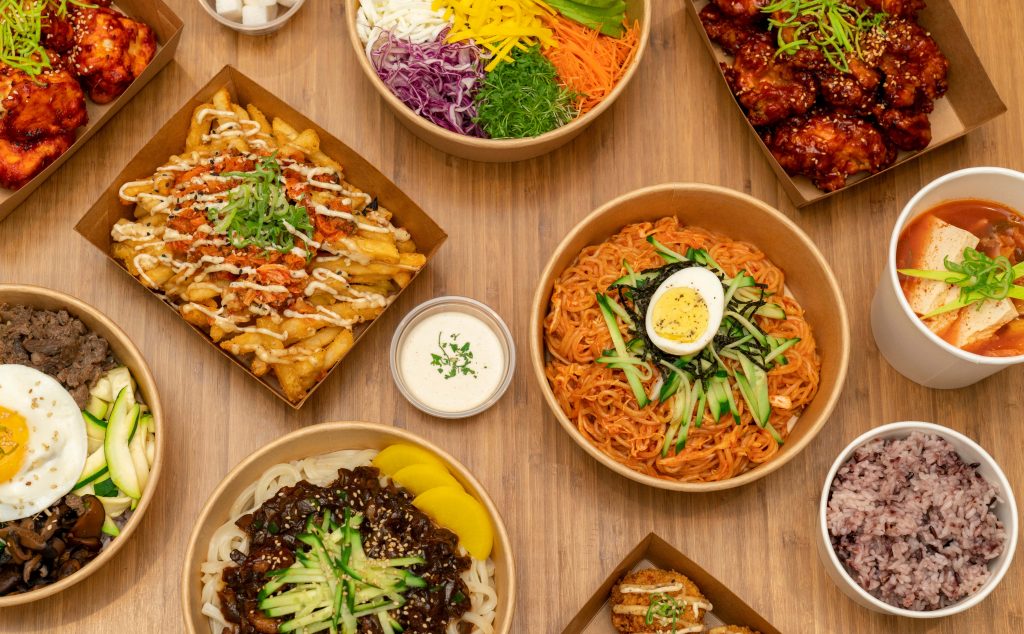
Jane previously worked in public relations but now manages logistics, design, technological aspects and inventory for Mama Lee’s. Young handles all the food preparation. They are equal partners in the business. “My mom’s dream for a long time was to open up a Korean takeout business,” Jane says. “We are of Korean descent, so this business is close to home for her. The restaurant has turned into our little baby. We’ve done everything for it, right down to the renovations.”
The pair faced some challenges along the way and had to adapt their approach in comparison to the Japanese restaurant they launched in 2008. For example, they had to source and use “protective equipment including hand sanitizer, masks, plastic shields and gloves,” Jane says. They also had some issues with consistent supply of key ingredients. “We changed our bowls because our supplier couldn’t get stock into Canada,” she explains.
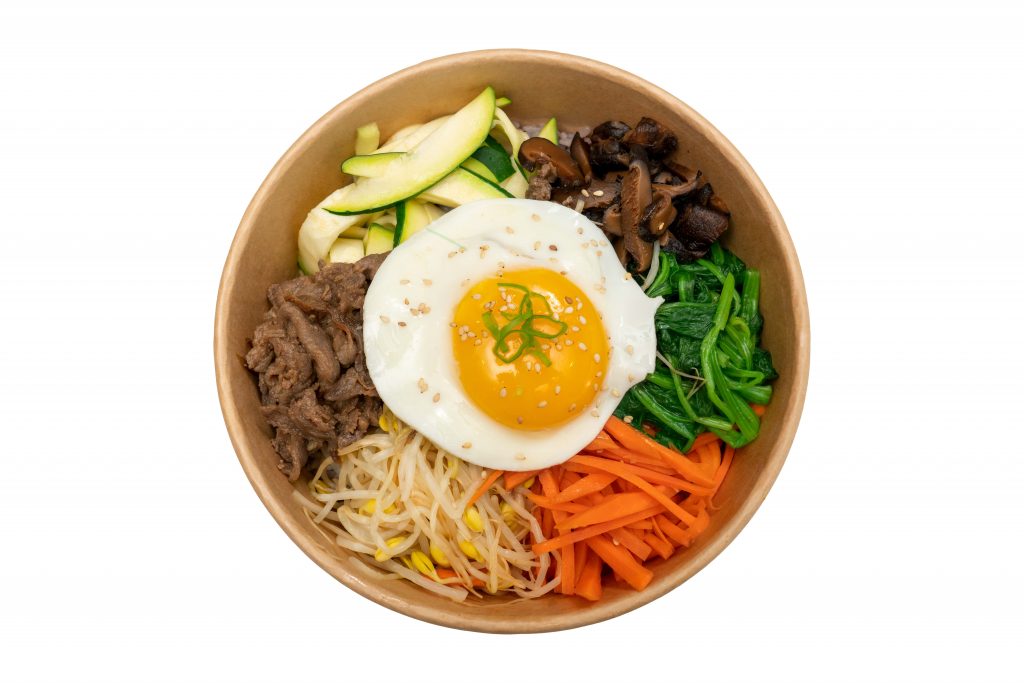
Jane has two favourite dishes, the first being the nostalgic “jja jja myun.” It is a noodle dish with black bean sauce, pork and vegetables. There was a period of my life where it’s all I would eat when we went out,” she admits. The second is Kimchi fried rice. “You can put kimchii on anything and it makes everything taste better,” she adds.
For folks interested in starting up a business during the pandemic, Jane says, “practice patience and stand your ground. Use your resources and ask questions. Fortunately, assistance is available, including provincial and federal grants. It’s worth looking into those online.”
Chef Donovan Gomes, The Chicken Cartel
At the
beginning of the pandemic, Chef Donovan Gomes was laid off from El
Catrin Destileria, the largest Mexican restaurant in Toronto. Instead of
tossing in the towel, he rolled up his sleeves and got to work on a new chicken project “out
of necessity of not having a job. I needed to support my wife, kids and
myself,” Gomes said. While appreciative of government funding, it wasn’t enough
to live off of long-term, so he had to create his own opportunities.
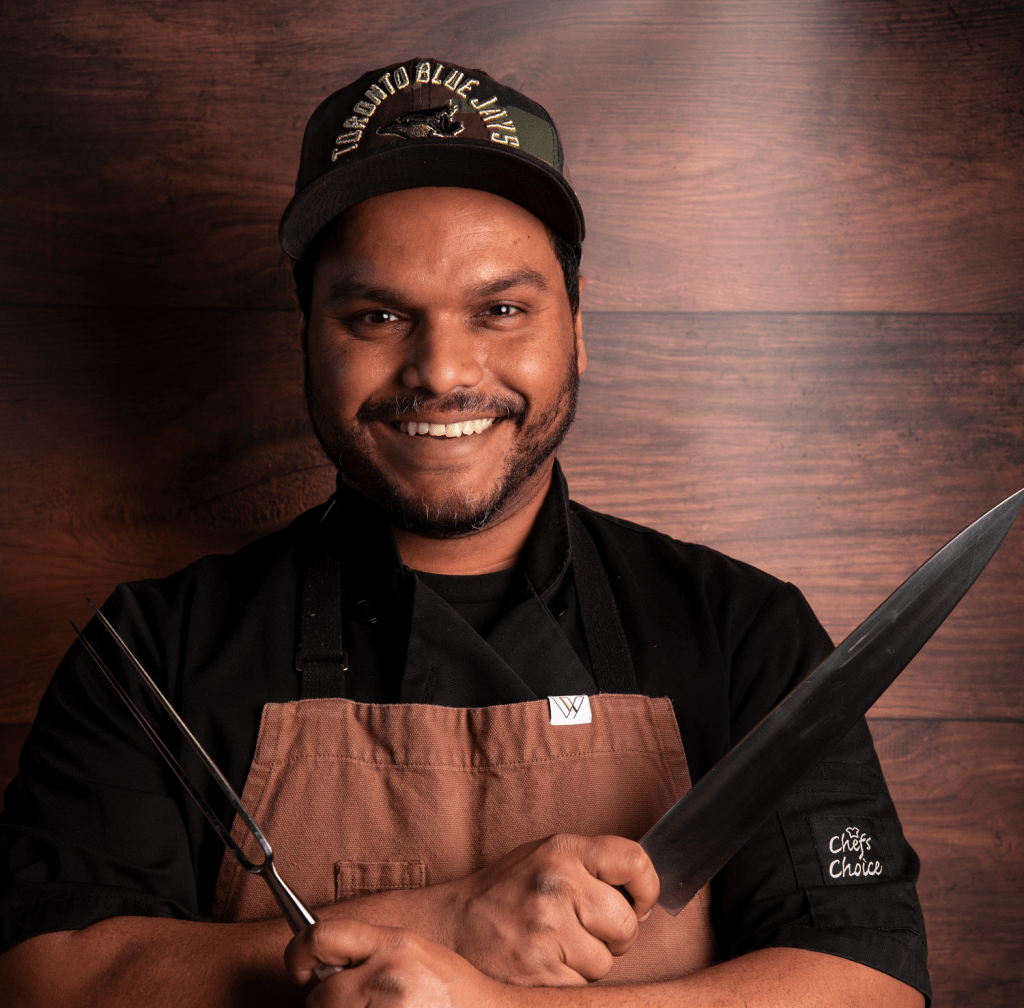
“I use the skills that I acquired over 17 years in the industry and pursued the entrepreneurial dream when I had the opportunity,” he says. Indeed,Gomes turned a difficult situation into a new business prospect. “I had a number of business concepts and narrowed it down to chicken. It is affordable, versatile and consumed in many people’s homes,” Gomes decided. “There are so many chicken joints in this city, but I want to use chicken as the vehicle to celebrate the ethnicities in Toronto that I have been exposed to throughout my life.”
The Chicken Cartel was the unique yet classical result. Gomes bases his menu on Caribbean, Latin, Asian and Indian cuisines. His favourite dish is the CHICKPLOSION, an item that features Thai green curry chicken. The business has become a family venture, as he garnered support from many of his family members, including his wife and two daughters, who have helped him along this journey. Though he had full family support, the biggest challenge he faced in the early stages was start up and working capital. “I pulled out a substantial amount of my savings to start up, buy equipment, pay the first month’s rent, etc.,” he says.
However, with patience and determination, he has learned a lot along the way. “I’m digesting information that I was never exposed to as an employee. I had to learn certain things about business ownership. It has been a good learning experience in website design and photography,” he says.
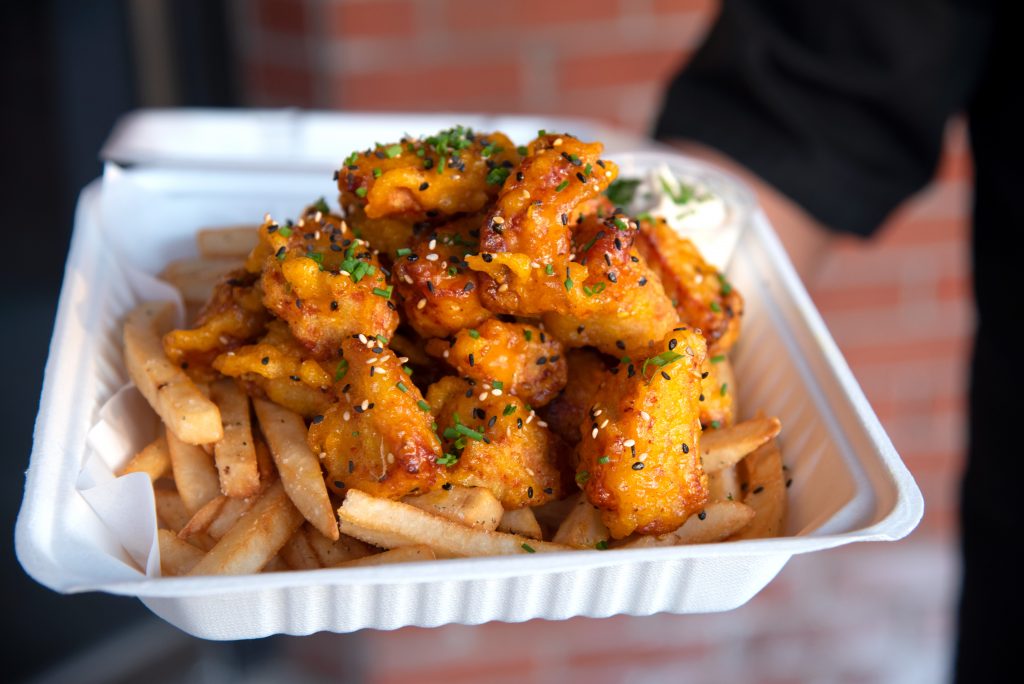
“Setting up vendors or suppliers is easy when you work at a big restaurant because they all come running when you call but, when you’re working for yourself, it’s hard to negotiate prices or you have to shop yourself. I’ve saved costs by doing most of the legwork myself.”
Since the pandemic rules out the dine-in option, Gomes focuses on food delivery and pick up in his pop-up kitchen. Gomes hopes to soon find a permanent venue for his business and “build The Chicken Cartel to be an extremely amazing experience for anyone who comes to partake in our food,” he adds.
Chef Gomes is turning his dreams into reality and he encourages everyone to commit to their ambitions. “If you are passionate about what you do, stick with it. Don’t change because the environment denotes that you won’t succeed. You just have to reinvent yourself. Don’t just call it quits,” he says. “You’ve devoted your whole life to becoming a chef, for example, so why are you going to toss all that out because you thought there was only one way to do things? There are multiple approaches, you just have to figure out your way.”
Evelyn Chick, Evelyn Chick Projects
Evelyn
Chick took the opportunity the pandemic presented to transform her side hustle
into a full-time career. Chick was a beverage director for a large hospitality
group, but in April 2020, she made her business Evelyn Chick Projects the top
priority. She first launched this business in 2018 as an umbrella
consultancy company that offers a wide range of services from bar design,
beverage innovation and spirits education to virtual events curation.

However, Chick had to adapt and reconfigure her original business model and strategies to conform to COVID-19 realities. She used her 13 years of experience in the hospitality industry to “find new ways to connect with consumers and try to turn what I have always done, which is guest services and creating beverage experiences, into a profitable venture,” Chick says. “I had to figure out how to make that (concept) come to fruition and then build a brand and website around it.”
Chick had to visualize what this new business would look like and focus on aspects that she was skilled in and could also drive revenue. “I was swimming into the unknown,” she says. “My whole business strategy right now is to bring the bar experience directly to peoples’ homes and connect them with their loved ones who they may not have a chance to visit, through custom designed cocktail kits and experiences,” Chick explains. “In-person webinars and workshops have shifted to a completely virtual realm.”
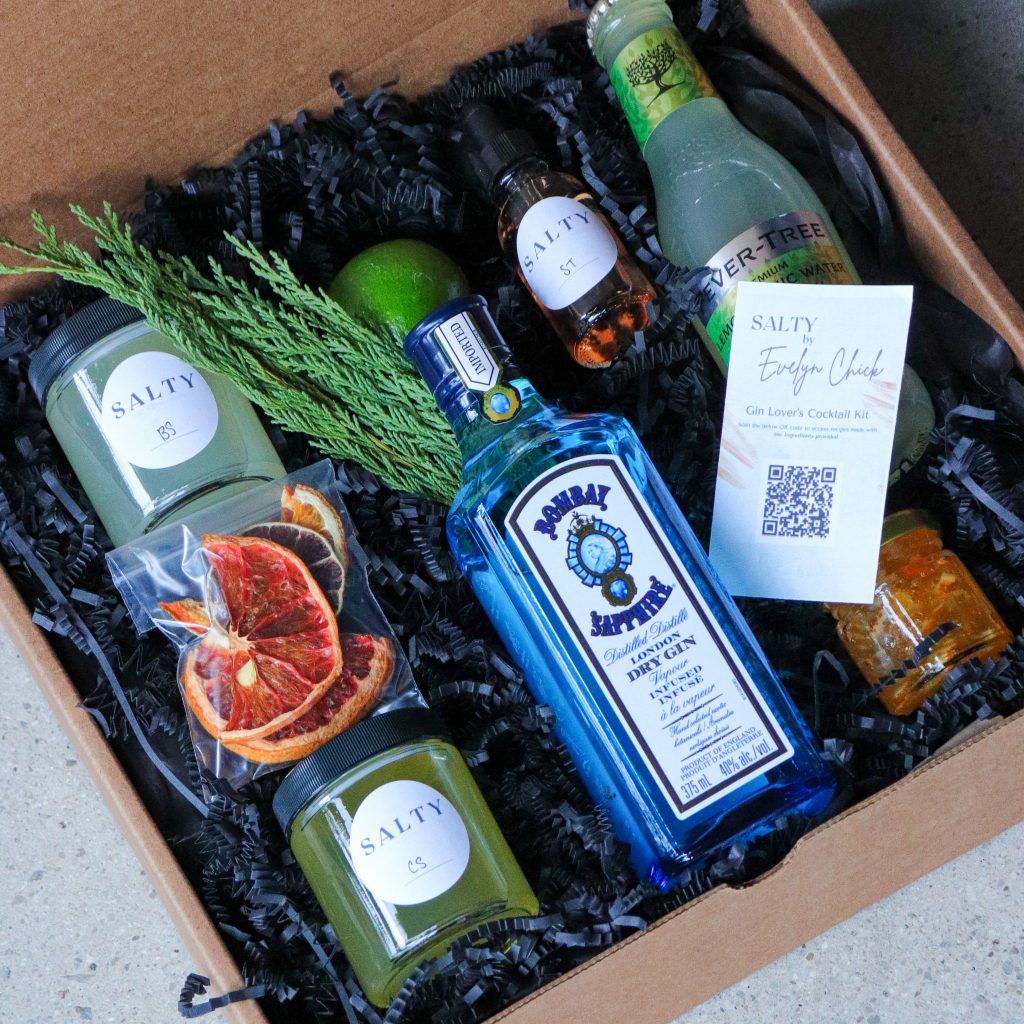
In addition, Chick is the designer and operator of Salty Paloma, a highly successful e-commerce store and is co-founder of Stay At Home Cocktail Club, Toronto’s premier custom cocktail subscription service and creator of unique corporate beverage experiences. Chick works hard to ensure her customers’ experiences are top-notch.
“I think consumers miss social interaction. There is only so much you can do virtually,” she says. “So we try our best to make sure that every aspect, from them ordering the kit to communication to event organization, is catered to their needs.”
Just as Chick had to shift her tactics, she urges other business owners to stay open-minded when challenges arise. “As a society, we have experienced a shift in dynamics. Keep an open mind for revenue streams, because I didn’t know this route was going to be my path until it paved itself,” she adds.
“The more adaptive, creative and flexible you are with your goals and vision, the better off you will be. We’ve never experienced this situation before and need to adapt on a day-to-day basis.” Chick is proud of the innovative approaches that food and beverage stakeholders create to thrive during the pandemic. “It’s amazing to see other individuals in the industry alter their business models to really show they are resilient,” she says.
Alyssa Talbot
Generating 93 billion dollars in revenue and 4 per cent of Canada’s GDP, foodservice was the country’s fastest growing industry in 2019. In total, Canada’s commercial foodservice sales in November 2020 were 32 per cent lower compared to November 2019.
Alyssa Talbot was proud to contribute to this economic powerhouse of an industry as a server in Hamilton. However, she was laid off last October. Now, she works in Toronto’s film industry. The biggest changes in her transition are “the hours and completely different scheduling,” Talbot says. “It’s just so different. I was in such a routine serving for five years. This new job in film made me change everything that I was used to.”
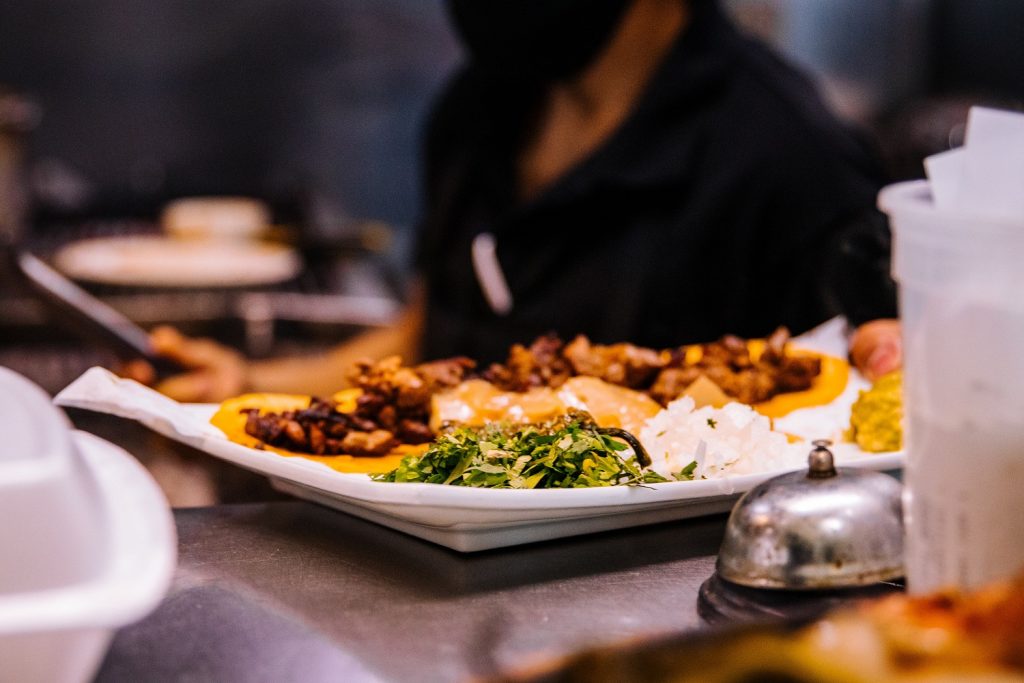
Though she enjoyed her previous job as a server, Talbot does not see herself working in the foodservice industry anytime soon. “Restaurant owners encourage as little social interaction as possible with customers,” she comments. “I don’t think I will go back (to food service) because the best part about serving was the people you met and social interaction. COVID-19 has taken that away.”
Talbot story reflects the reality of the labour force in foodservice and hospitality. So many of the incredible talent that makes up our workforce, and Talbot story begs the question – will they return?
What does this mean for the future of foodservice?
The COVID-19 pandemic has caused shifts in most industries and foodservice definitely was not immune to immense challenges posed by safety regulations and protocols in each province and territory. Fortunately, foodservice stakeholders exemplified their drive and ingenuity.
Indeed, “COVID was a terrible time to own a restaurant but a great time to launch one. Folks in this industry are creative and entrepreneurial by nature,” says Jo-Anne McArthur, president and chief strategist at Nourish Food Marketing in Toronto. “They found new ways to deliver food and beverage experiences to people. Micropreneurs, both professional chefs and home cooks, have created meals and food products out of their personal kitchens using word of mouth and Instagram to find their customers. For many foodies with a dream, the pandemic and lockdown restrictions offered much-needed time and the push to launch their businesses.”
People must stay at home and away from public spaces. As a result, food business owners must meet guests where they are most comfortable and safe – in their homes. “Home delivery will remain important even after things open up, as more people will continue to work from home part of the time. Remember, delivery and takeout were growing pre-pandemic, primarily driven by younger generations, and these are the workers who are most likely to continue working from home,” McArthur says. Restaurants and dining experience could undergo major overhauls in a post-COVID-19 world.
One statistic states that “87 per cent of Canadians agree that they are looking forward to eating in restaurants again and will support their local restaurants as soon as they reopen,” McArthur says.“Restaurants need to be ready to meet that pent-up demand for in-restaurant experience and surge in post-pandemic visits, and ensure that the first experience does not disappoint.”
In addition, robotic solutions may come into play, such as touchless technologies for condiment dispensers, door openers for guests and conveyor belt food delivery systems, she says. “Will full service and fine dining be more purposeful, offering unparalleled and one-of-a-kind experiences?” McArthur asks.
Business owners are “now competing with ghost restaurants built for mobile-first. You cannot win on convenience or operating costs – that genuine hospitality is your point of difference.
“After a year of plating our restaurant meals at home while in sweatpants, that white napkin service in a formal dining room may not be what we now equate with hospitality.”
Chefs may cook for and serve a smaller group of friends in a micro restaurant to create a more exclusive and intimate dining experience, McArthur says.
The pandemic has and will result in changes to systems and operations in all industries. How will the foodservice industry respond?
Header image via Instagram



